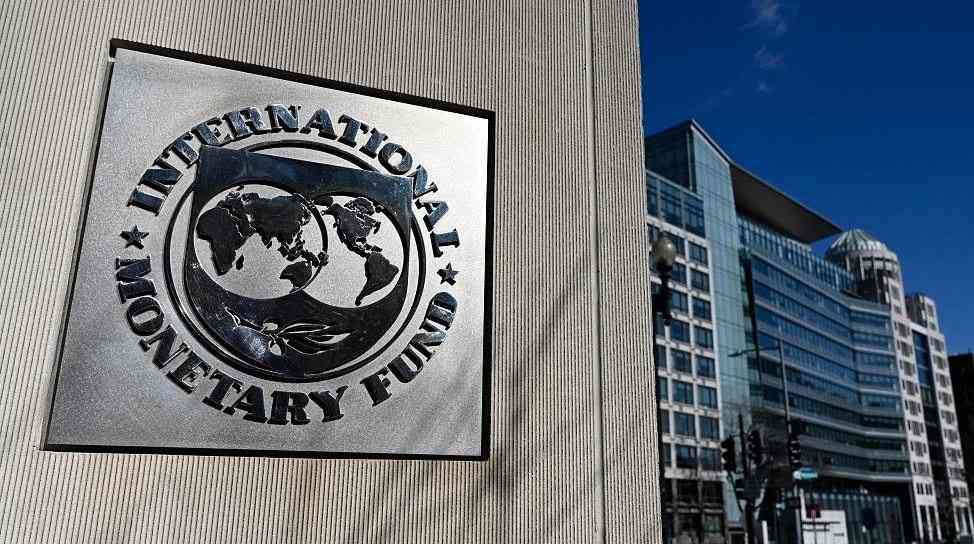
STAFF-monitored Programmes (SMPs) are informal arrangements made between authorities of various countries and the International Monetary Fund (IMF) in a bid to monitor economic programmes set by different states.
Through SMPs, the IMF has assisted various countries to emerge from economic challenges and set themselves on a recovery trajectory.
In June 2023, the IMF agreed on an SMP, which spans from June 2023 to March 2024 in an attempt to assist Haiti from spill over effects of the Russian invasion on Ukraine.
The programme has actually started to yield positive empirical results, albeit having been under the economic cosh.
This article will, however, focus on Zimbabwe and how best it can achieve macroeconomic stability as well as clearing its debt by adhering to the set guidelines.
On August 16 2023, the Ministry of Finance released a press statement outlining a clear roadmap on the course of action it will take in an attempt to clearing its arrears and the debt resolution plan holistically.
The press statement outlined that the Government of Zimbabwe will sign the SMP in the last quarter of 2023 or first quarter of 2024. At this juncture, we will narrow our focus on how the SMP will help achieve macroeconomic stability as well as debt clearance.
Economic policies under the SMP emphasise on implementing a large fiscal adjustment, the elimination of the central bank financing of the fiscal deficit, and adoption of reforms to allow effective functioning market-based foreign exchange and debt markets.
- Platinum miners reject BNC refinery
- One stitch in time saves nine
- Govt to review suspended contracts as Zimdollar shortage bites
- Zimbabwe infrastructure: The contract management skills gap
Keep Reading
The SMP also requires that authorities have effective corruption combating mechanisms in place to ensure there are no leakages as far as financial resources are concerned.
How effective is the SMP?
Outlined below are how effective an SMP can be:
Accountability
The SMP is in place to monitor Zimbabwe’s economic programme through accountability. All funds generated and injected into the economy should be accounted for. There should be no room for arbitrage in economic transactions.
The Ministry of Finance and Investment Promotion should have robust and sound policies that enhance accountability. This concept of accountability is effective because it gives authorities the obligation to handle funds with much responsibility and ensure that there is no misuse of resources.
It also enhances the correct allocation of funds because there is that principle that all resources will have to be accounted for. If put to praxis, the SMP will yield positive results because once money is put to its correct use, the economic stability can be restored.
Revenue administration
The SMP also demands proper revenue administration by economic authorities. Revenue handling is a complex concept hence if monitored it can actually yield the desired results to achieve macroeconomic stability.
The IMF can assist the Zimbabwean government with low cost funds to kick-start construction programmes and other investment projects that can boost employment and bolster economic activity.
It may be futile to inject funds into the economy without monitoring administration of the revenue hence the SMP requires that revenue is well administered, the rightful ministries are allocated funds and channelled accordingly to boost economic activity.
As alluded above, success of this relies solely on praxis. If correctly implemented, it is true to say there will be positive results as far as macroeconomic stability is concerned.
Corruption mechanisms
It is also an integral element of the SMP to ensure that authorities have solid mechanisms and systems to mitigate and eliminate corruption as this can be a virus as far as economic progress is concerned.
In this vein, it stands to reason that the economic progress is highly possible when elements of corruption are combated through solid and robust mechanisms.
This will then attract more funds being availed by the IMF and ultimately boosting the investments and aiding in ensuring macroeconomic stability in the medium to long term.
Preparedness to sign the SMP
The SMP requires authorities to implement a large fiscal deficit as well as eliminating the central bank from financing the budget. With regards to Zimbabwe, the Ministry of Finance and Investment Promotion comprehensively outlined how they assumed responsibility of the treasury from the central bank, a move which will be imperative in signing the SMP.
It also points to fiscal adjustments by the government, a move which aids our cause to adhere to set guidelines.
What remains to be seen is a pragmatic approach, as far as following the requirements of the staff monitored programme are concerned, that is in relation to corruption, revenue management as well as finance management.
Empirical success of the SMP
The IMF has achieved economic recovery for various countries in distress. Haiti is the classic recent example and according to statistics, Haiti has already started to witness macroeconomic stability despite having been under economic stress in 2022.
The presence of the IMF dates back as early as the 1960s and its aim has always been to enhance economic growth and stability through technical and financial assistance.
According to IMF, the statistics indicate that they have disbursed over US$1 trillion in loans since 1984 to August 31 2023 with an average of US$11 billion per year.
These funds have seen many developing countries emerge from financial quagmire and achieve macroeconomic stability.
Over 94 countries have emerged from serious financial challenges with the aid of the IMF.
It is imperative for the Zimbabwean Government to be practical in adhering to set guidelines of the SMP to ensure that it clears its debt as well as attain macroeconomic stability.
- Nyatanga holds a Bachelor’s degree in Banking and Investment Management from the University of Science and Technology. — +263 784909184, [email protected].











